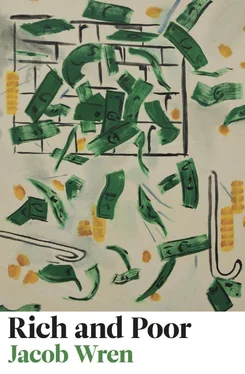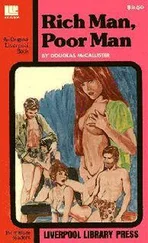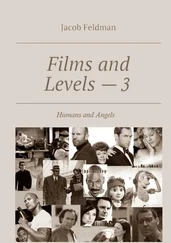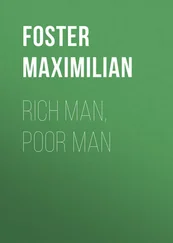That night there was an enormous meeting. I began by quickly, and I believe efficiently, outlining my proposal for a one-day strike. Then I moved on to the main obstacle: that because our bosses here were only subcontractors, the important people — their clients, the people who paid them and therefore had the actual power to meet our demands — would not be affected, would most likely never hear about our strike. Rapidly the meeting got rolling, everyone throwing out ideas, jokes and suggestions in every possible language, while others tried to translate, and yet, miraculously, I did not yet know why, people were for the most part speaking one at a time, interrupting each other, but letting everyone have a turn. This left me slightly in shock, even now when I think about it. An objection was made that judging what had already been done to me, if we proceeded some of us would most certainly be killed. And several others, each in their own language, countered that the way we were living here, the way we were treated, we might as well be dead already, that things couldn’t get worse. Things can always get worse, someone yelled from the back, when you reach hell there is always another hell underneath. Yet he said it in a way that made us all laugh; he sort of honked his voice on the word hell, making it sound less like a place, or state of mind, and more like a vaudeville routine.
I tried to move the debate away from the question of whether we should strike, and towards the main obstacle: how to let the corporations, the buyers, know we are striking, so there is at least some chance they would meet our demands. Soon everyone was shouting out ideas:
“We can all get on buses, show up at their front door.”
“Where are we going to get fucking buses?”
“We can hijack the buses, the buses they use to take us to work.”
“If we steal just one bus, the cops will chase us down in a second. We’ll all end up dead or deported.”
“Where are the head offices?”
People yelled out the names of cities, seemingly at random, also the names of companies, names they had seen on the sides of eighteen-wheelers, or on cardboard boxes, as, on rare occasions, they had to pack the produce themselves. And I recognized the name of every division. It was like a revelation, like something religious. Had I or had I not already known that the main client for most of the farms that surrounded us were divisions of my former employer? I must have read it, seen the names, many times over, back when I was compiling my reports. But it was only at this precise moment that I fully made the connection. Of course they were the ones profiting from this exploitation. They were always the ones.
1.
I’m losing my nerve, or perhaps the bulk of it is already gone. At the same time, from the outside, few cracks show, no one can tell. No one can tell and yet everyone knows. It’s now as if there were three strikes against me. The first strike was the takeover bid. We successfully defeated them, kept our organization intact, but in the ensuing scuffle lost Emmett, and in some sense our legal difficulties have remained constant, at times overwhelming, since that uneasy victory. The second strike was the crash. We came out okay, but it is possible to speculate that a younger, more effective version of myself would have come out considerably ahead, as did so many others. The third strike was the murder attempt. No one knows exactly what happened, or why, and therefore malicious rumours run rampant. And then the thing I so rarely even consider, which is in fact the forth strike, that I am getting old, and there are many young men out there hoping to some day have my job. The killer knows what it’s like to be a killer, yet can barely imagine what things feel like on the other side of the equation.
The more I worry about it, the more it occurs to me that the book, both books — the one I wrote and the one written, on the verge of their hack-divorce, only to slander me — also had something of a negative effect. Here I am once again on an airplane, travelling somewhere with the stated aim of gaining an overview. Yet as I travel I’m learning little new information about the overall state of the organization, and a great deal about my own mental state, which I am forced to admit is poor. I want to blame piano-idiot, but it is never wise to blame others. I have always been a man who believes that every problem has a solution; it is only a matter of strategy, will and luck. The woman in the seat beside me is reading and I decide that I should read as well. In the seat pocket in front of me I have already placed five slim volumes of poetry, the finalists for this year’s prize.
Shuffling through the books I suddenly realize that one of them is by him, that bastard Marxist who tore up our cheque in front of everyone. He spits in our face and we have the good graces to nominate him again. Suddenly I’m seized by an anger that wants to explode, like a bomb in this plane, tearing it in two and dropping it out of the sky. He spits in our face and yet we’re so generous, so benevolent, we care so much about poetry that we reward him by nominating him a second time. If he was here in front of me now, I would tear out his throat. The woman beside me thinks I’m having a heart attack, asks me if I’m okay, and, I don’t know why, I have to vent, I end up telling her the entire story. It turns out she is also a poet, or at least she was when she was younger, before she got married. She put out two volumes, asks if I’ve heard of them and I lie, saying that I had. She then has the nerve to go on to tell me that the idiot Marxist is one of her favourite poets, that his talent clearly transcends his politics, and our committee did the right thing in nominating him a second time.
Now I want to tear out her throat as well, but at the same time I’m beginning to catch hold of myself, to calm down. He is only a poet, and I am a billionaire, and I know at the end of the day there is no real way he can hurt me. He has no public voice, only a few readers, while I have every newspaper in the free world. That’s why we chose to sponsor a prize for poets and not a prize for movie actors, who wouldn’t need the extra money anyways, but would always be happy to receive any extra attention. The middle-aged poet beside me is clearly worried that I’m still upset. I can tell she thinks I’m far more infuriated than the situation warrants, and she is most likely right, but I hate feeling weak. I know there is another way of viewing the situation, that by nominating him a second time we are in fact showing our strength, showing we are impervious to his attacks, that they do not affect us, but I am too angry, cannot bring myself to see it from this angle.
Wanting to change the subject, I ask the woman what her husband does, and find out that he works for us, which is not as much of a coincidence as it first seems, the organization always uses this airline, which we own. And then I realize she will get home and tell her husband, tell him that on the plane she met the big CEO of everything and that, of all things, I was fuming about a book of poetry. It’s almost too ridiculous to believe, but the story will come from his wife so he’ll believe it, and will most likely tell anyone willing to listen. Now, on top of feeling furious, I also feel humiliated, and I’m stuck on this plane with nowhere to go and nothing to do. I ask a few more questions about her husband, learning he’s actually quite high up on the energy side of things, which is probably why she is sitting here beside me in first class. If he tells everyone he knows, it means that many of the employees I deal with on a daily basis will also hear this story, the story of the big boss getting all worked up over a poetry book. For a moment I consider asking her to tell no one, to keep what I’ve told her only between her and me, but I know enough about human nature to know it would be futile. I am a stranger, she owes me nothing, and a good story, especially one that humiliates the powerful, is a story that must be told.
Читать дальше












